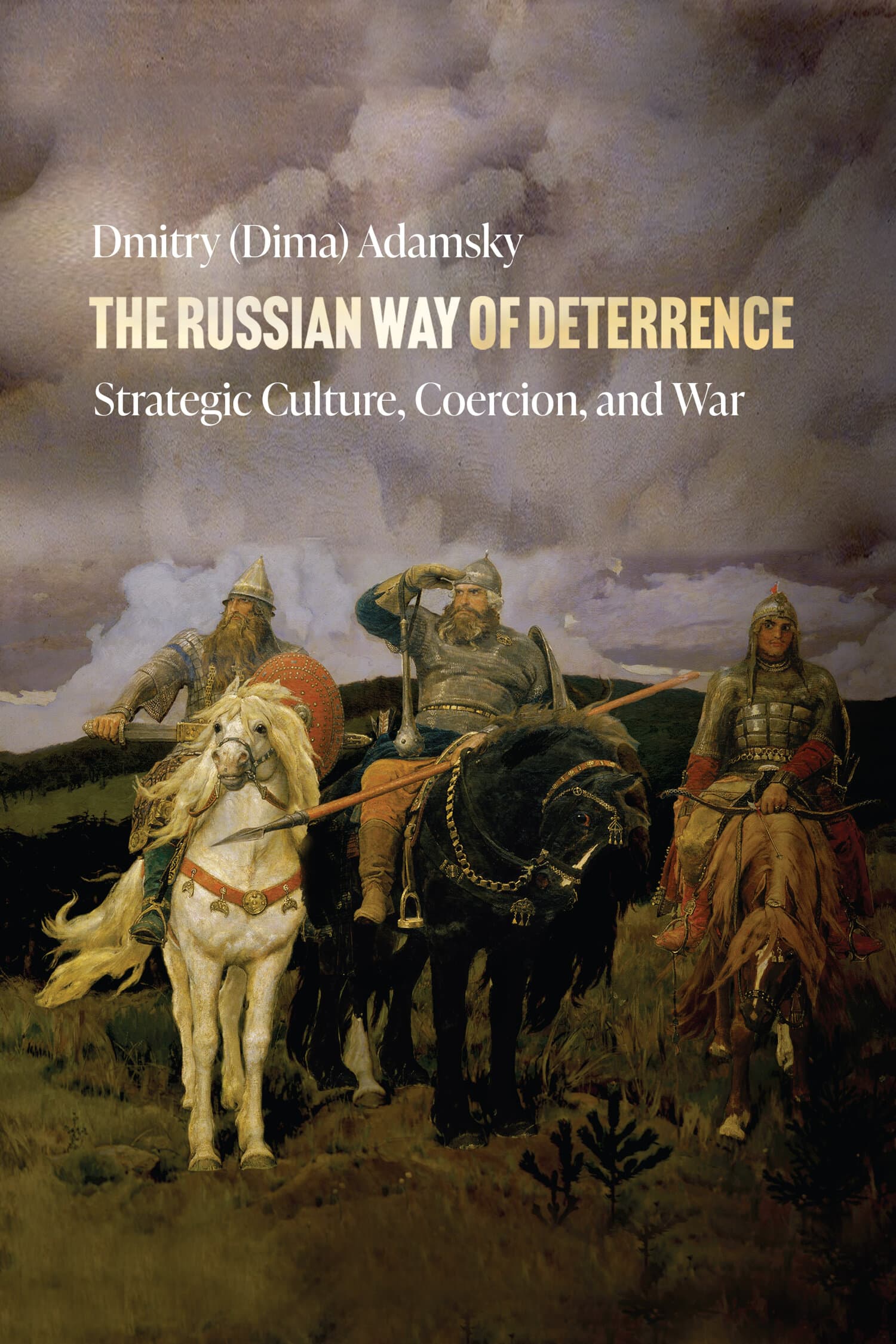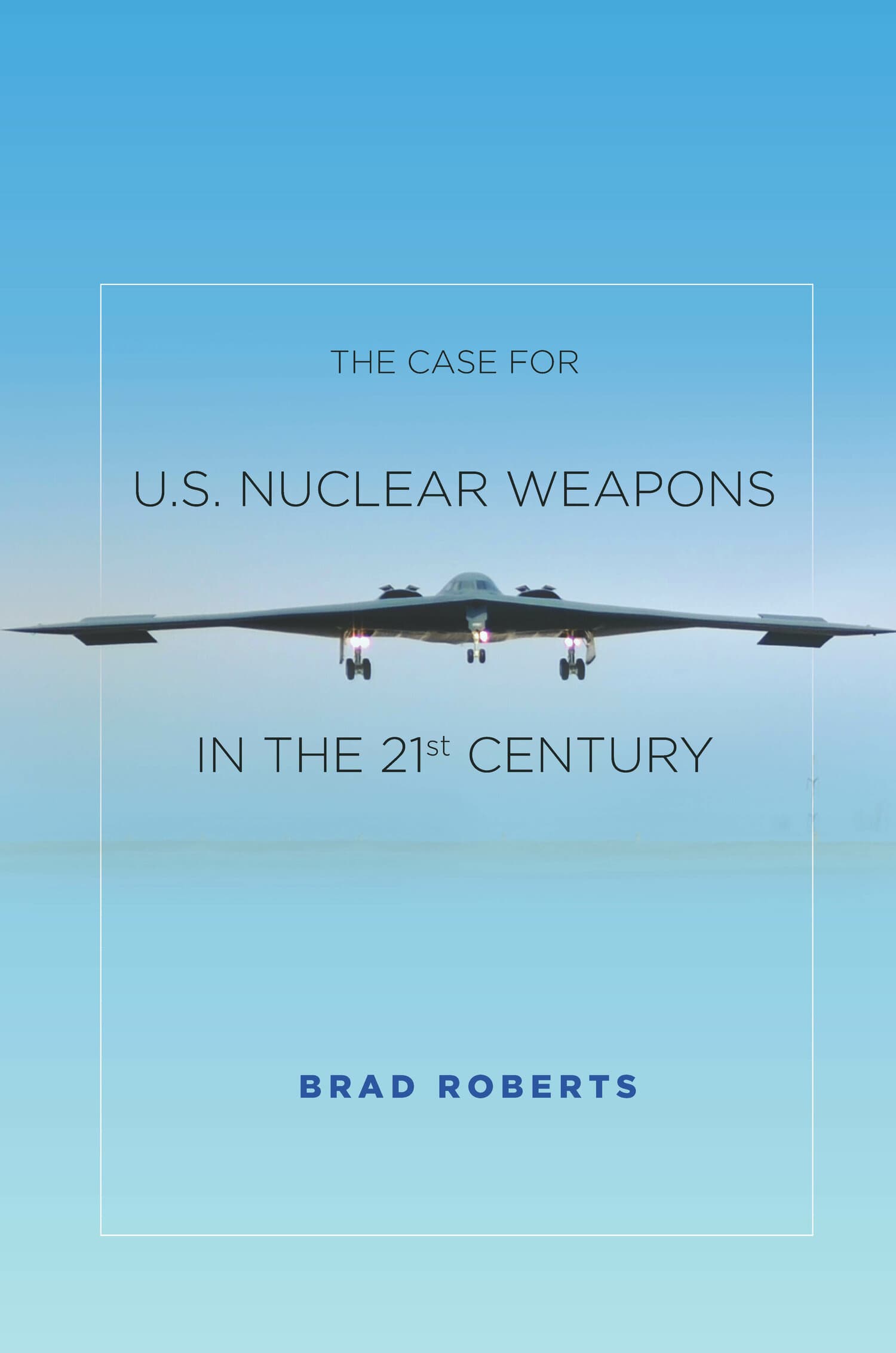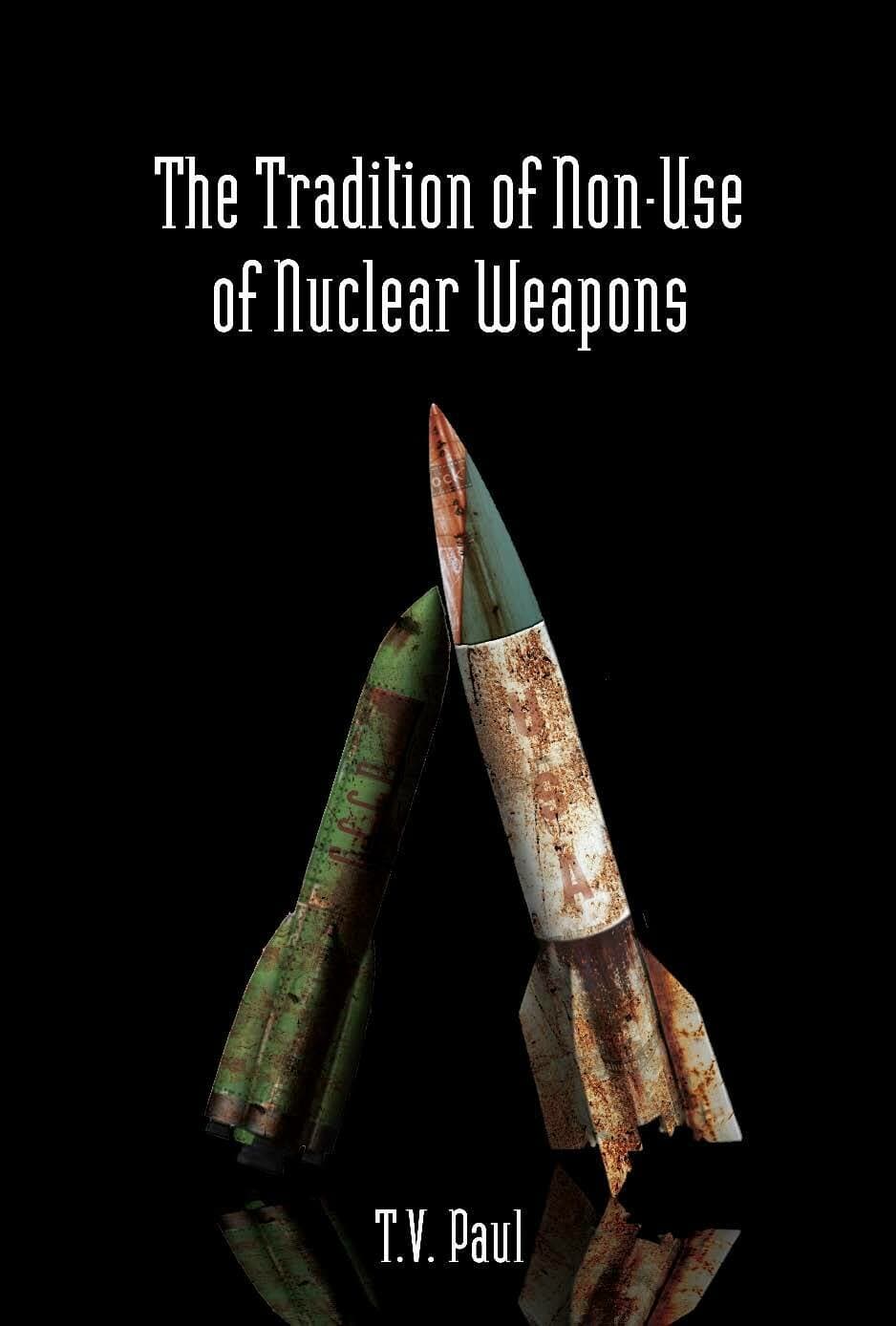Russian Nuclear Orthodoxy
Award Winner
2020: Religion and International Relations Book Award
Co-winner of the 2020 Religion and International Relations Book Award, sponsored by the International Studies Association (ISA).

A nuclear priesthood has arisen in Russia. From portable churches to the consecration of weapons systems, the Russian Orthodox Church has been integrated into every facet of the armed forces to become a vital part of Russian national security, politics, and identity. This extraordinary intertwining of church and military is nowhere more visible than in the nuclear weapons community, where the priesthood has penetrated all levels of command and the Church has positioned itself as a guardian of the state's nuclear potential. Russian Nuclear Orthodoxy considers how, since the Soviet collapse in 1991, the Church has worked its way into the nuclear forces, the most significant wing of one of the world's most powerful military organizations.
Dmitry Adamsky describes how the Orthodox faith has merged with Russian national identity as the Church continues to expand its influence on foreign and domestic politics. The Church both legitimizes and influences Moscow's assertive national security strategy in the twenty-first century. This book sheds light on the role of faith in modern militaries and highlights the implications of this phenomenon for international security. Ultimately, Russian Nuclear Orthodoxy interrogates the implications of the confluence of religion and security for other members of the nuclear club, beyond Russia.
"Russian Nuclear Orthodoxy is an outstanding account of how religion came to shape one of the most important security apparatuses of our times, Russia's nuclear forces. Dmitry Adamsky describes in riveting detail how the Orthodox Church, once banned from the armed forces entirely, came to influence the symbols, practices, and beliefs of Russian soldiers. Enthusiasts of Russian politics, security studies, or religion and politics, will delight in this book."—Ron E. Hassner, University of California, Berkeley
"Dmitry Adamsky has given us a richly documented analysis of the post-Soviet nexus between religion, nationalism, and nuclear weapons in Russia. This highly original book throws new light on an intriguing development that has far-reaching implications for Russia's domestic politics as well as its national security policy. An important, pioneering work!"—David Holloway, Stanford University
"No one but Dmitry Adamsky, with his scholarly persistence and ingenuity, his literary skill, and his insight into Russia's history, culture, and military mentality could have written this extraordinary book. Religion intersects with strategy in many ways, but this is a case that will astonish (and in some cases alarm) Western readers including some of the most sophisticated ones. A magnificent, fascinating, and altogether unique study."—Eliot A. Cohen, Johns Hopkins University
"Adamsky has written a highly readable and informative book on a woefully understudied topic...To its great credit, the study goes well beyond the organizational aspects of the 'churchification' of the Russian military. Adamsky asks important questions regarding the tension between the generally peace-loving nature of Christianity and the glorification of the military that is found in the 21st century conception of Russian nuclear orthodoxy."—Dmitry Gorenburg, Harvard Davis Center; Russia Matters
"Adamsky's Russian Nuclear Orthodoxy... should become required reading for all those involved in relations with Moscow and especially those in the Western security community....Adamsky has amassed so much evidence of Orthodoxy playing a role in the strategic nuclear community in Moscow that no Western analyst concerned about the possibility of a nuclear conflict can afford to ignore his findings or the light they throw on the thinking of Russian leaders and commanders."—Paul Goble, Eurasia Daily Monitor
"What Adamsky demonstrates is nothing short of a remarkable transformation in Russian military and diplomatic worldview, captured in the term nuclear orthodoxy."—Robert J. Joustra, Providence
"Russian Nuclear Orthodoxyis a seminal work on a very important topic. I urge readers to study this well-researched book in order to gain important insights into Russian church-state relations and their impact on the Russian nuclear community."—Bulletin of the Atomic Scientists
"Adamsky's own background has provided him with a powerful lense to view the subject. The book proves him to be intimately familiar with rituals of faith and military might in post-Soviet Russia, but balances that intimacy with a cold and analytical eye."—Moscow Defense Brief
"Adamsky's brilliant journey across Russian political-strategic culture...suggests that western society must appear to the denizens of the Kremlin as chaotic and easily destabilized, while their politics, in contrast, appear to them to be constant and unreachable in the firmament above."—James J. Wirtz, International Affairs
"Dima Adamsky's Nuclear Orthodoxy is a must read—for laying out how the Orthodox Church has helped to create a new sacred, strategic narrative which puts Russia's defense spending and national-security posture into context."––Nikolas K. Gvosdev, The National Interest
"Russian Nuclear Orthodoxy...demonstrates convincingly that there are indeed important signs being missed all around us, pointing to a longstanding nexus between the Russian Orthodox Church and the country's nuclear-military-industrial complex. Adamsky's groundbreaking book lays out the largely unstudied history of how a nuclear priesthood emerged in Russia, permeated the units and commands in charge of Russia's nuclear forces, and became an integral part of the nuclear weapons industry."—Michael Kofman, War on the Rocks
"Russian Nuclear Orthodoxy...is a groundbreaking analysis exploring the intersection of religion, politics, and strategic affairs in Russia. A cogently argued and remarkably well-sourced analysis that is sure to become a staple in future scholastic research."—Nathaniel P. Lanaghan, Air & Space Power Journal
"Not prone to culturally essentialist flights of fancy, Adamsky has shown a particular skill for interpreting the peculiar mixture of circumstances, organizations, and socio-cultural dispositions that shapes how militaries conceptualize and operationalize new ways of fighting."—Jon Askonas, Texas National Security Review
"[An] insightful and meticulously sourced book....Adamsky's work is important because, if his analysis is correct, the trends that he documents have the potential to reshape the Russian nuclear science establishment, the Russian military, and Russia's policy toward nuclear weapons."—Anya Loukianova Fink, Texas National Security Review
"[An] important, timely, and deeply troubling new book....It should be read by everyone trying to understand the thinking of the current Russian leadership about nuclear weapons. This book adds an entirely new perspective to this debate, one that is far from reassuring."—Brad Roberts, Texas National Security Review
"[This book] stands out as a seminal event, as it brings together impeccable scholarship with policy relevance far beyond the specific area of American-Russian relations....Russian Nuclear Orthodoxy has deservedly gained attention far beyond the academic walls within which it was written, with its insights and rich empirical material sure to inspire much discussion, reflection, and (one hopes) imitation for some time to come."—Irena du Quenoy, Texas National Security Review
"It is not often that one picks up a volume and learns something from each chapter, if not every page....If you think of the Russian nuclear world as a bastion of atheism, you will realize that you were wrong after reading this book."—Olga Oliker, Texas National Security Review
"Russian Nuclear Orthodoxy offers a detailed and comprehensive account of the growth and intensifcation of the state–religion nexus and its infuence on Russian military afairs."—Mathieu Boulègue, Survival
"Standing out from the crowd of literature currently being published on Russia, this excellent book deserves a wide-ranging readership: academic and policy audiences alike will gain much from reading it, illuminating as it does how the Russian leadership understands contemporary security and how policies take shape there. It is core reading."—Andrew Monaghan, RUSI Journal




